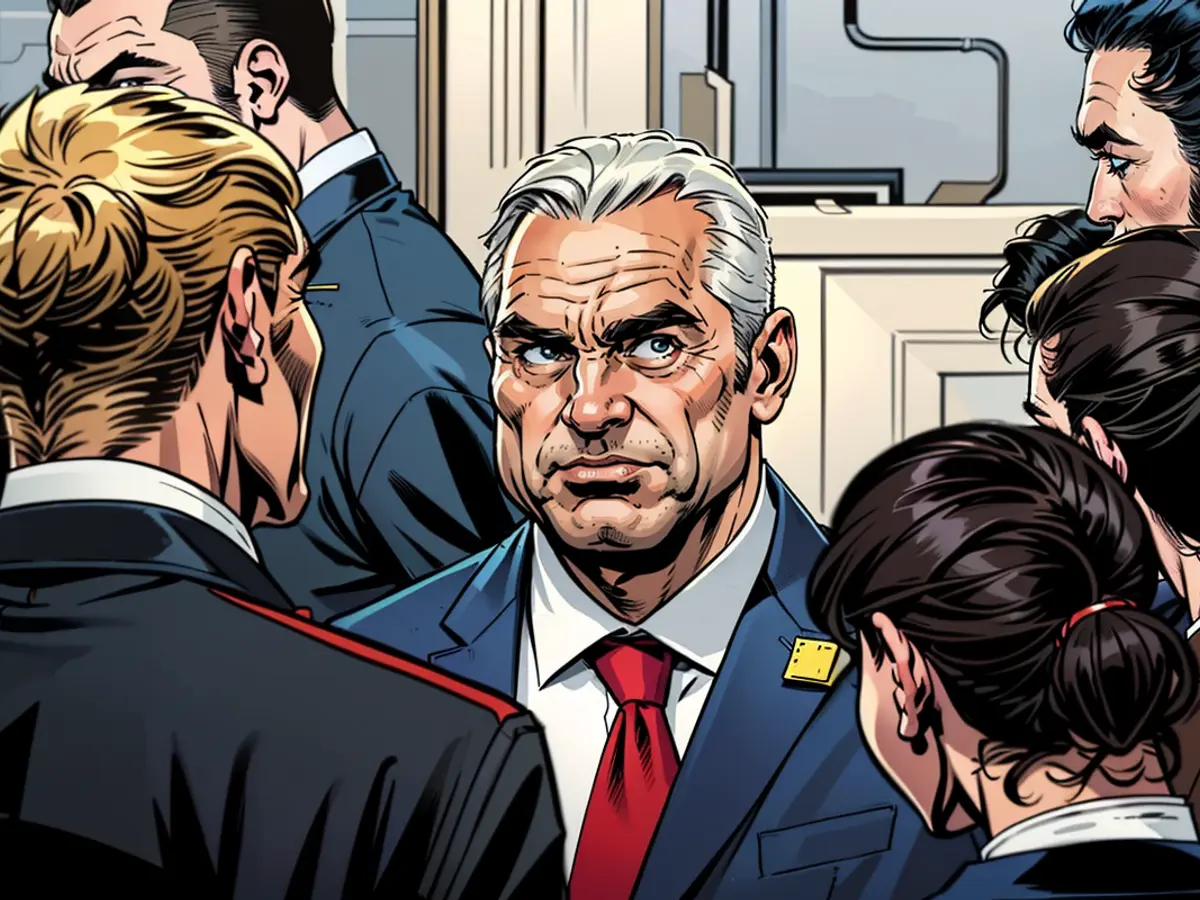The anger over Orban is breaking records
In Brussels, the anger towards Orban's audacity grows. For his charm offensive with Putin, he now receives the reckoning. The EU Commission punishes Hungary's Prime Minister – with a boycott. The European Parliament demands even harsher measures.
Corruption, abuse of power, and blockades: all part of Viktor Orban's political toolkit. The unpopularity of Hungary's Prime Minister in Brussels grows, and his latest audacity was Orban's so-called "Peace Mission," which took him to Kiev, Moscow, and Beijing. With his surprise visit to President Vladimir Putin, Orban crossed a line. He did not inform his European partners about the trip – despite holding the EU presidency. Now, the EU Commission is punishing him.
EU Commission President Ursula von der Leyen announced that she would no longer send commissioners to informal ministerial meetings under the Hungarian EU presidency. Only high-ranking officials will participate in these conferences in the future. Additionally, the EU Commission has given up on the traditional inaugural visit to the Hungarian presidency, as a CDU politician's spokesperson revealed.
Orban's pro-Russian stance and his close relationship with Putin are nothing new in Brussels. Time and again, Orban blocked aid for Kiev and supported Moscow's position in the EU Council. At the beginning of his EU presidency, which began on July 1, Orban's "Peace Mission" was a provocation of a special kind.
Putin welcomes Orban as the EU's envoy
Despite not being on the EU's behalf during his journey, Orban used the logo of the Hungarian EU presidency for his videos and photos from the trip. Moreover, Putin welcomed his friend as an envoy of the European Union. "I understand that this time you are coming here not only as our long-term partner, but also as the current EU presidency chairman," Putin said at the welcome. Orban, however, failed to ask Putin to withdraw from Ukraine or even condemn his aggression. This, however, does not align with the EU's official position.
The anger towards Orban's audacity grows in all EU institutions. In the European Council of European Heads of State and Government, voices are gradually becoming louder, calling for Hungary to be deprived of its six-month EU presidency. The European Parliament came to this conclusion last year, that Orban is unsuitable for the EU presidency.
Members of the European People's Party (EPP), the European party family of von der Leyen, have been urging the Commission and the Council for a long time to take a tougher stance against Orban. Eventually, European conservatives, including the CSU and CDU, expelled Orban's Fidesz party from their ranks in 2019. The reasons were Orban's destruction of the rule of law in Hungary, rampant corruption, and the illegal use of EU funds.
Orban's EU presidency tenure can only be taken away by his colleagues
Finally, the European People's Party (EVP) raised no objection when the European Parliament sued the European Commission of the von der Leyen EU Commission in March over the controversial release of funding for Hungary. A judgment in this case should not be earlier than next year. The Commission justified its release of a total of 10 billion Euros in funds by stating that Orban had met the necessary conditions - he had initiated reforms for more rule of law. However, parliamentarians harbor significant doubts about this representation.
It is tactically motivated that the Leyen boycotts Orban's presidency of the Council of the European Union precisely now. The decision to no longer send Commissioners to the informal Ministerial meetings two days before the vote on her second term in the European Parliament is a clear signal. The Leyen's loose coalition there consists of the European People's Party, Social Democrats, and Liberals so far. The Greens could also join them after the vote on Thursday. Members of these European political family parties have been urging the Leyen for years to take a tougher stance against Orban.
The wish of the Parliament to take away Orban's presidency from him again is something the Leyen cannot fulfill. For such a decision, a qualified majority would have to be found in the European Council: At least 20 of the 27 Member States, representing at least 65% of the EU population, would have to agree. No such attempt has been made yet. The anger towards Orban among his EU colleagues in the Council apparently does not yet reach the level required to remove him from the chair of the Council Presidency.
- Despite Orban's "Peace Mission" to Kiev, Moscow, and Beijing, he failed to condemn Putin's aggression against Ukraine, which contradicts the EU's official position.
- The European Parliament, displeased with Orban's actions, has demanded even harsher measures against Hungary's Prime Minister.
- The European Ministerial Council, consisting of EU Heads of State, is gradually expressing stronger opposition to Orban's EU presidency.
- The European Court of Justice is currently reviewing a case against the EU Commission over funding releases to Hungary, initiated by the European Parliament.
- Vladimir Putin welcomed Orban as an envoy of the European Union during his visit, although Orban did not represent the EU officially.
- EU-Politician Ursula von der Leyen announced that she would no longer send commissioners to informal ministerial meetings under Hungary's EU presidency due to Orban's actions.
- Viktor Orban's pro-Russian stance and close relationship with Putin have been a long-standing issue in Brussels, often resulting in him blocking aid for Ukraine and supporting Moscow's position in EU Council meetings.








